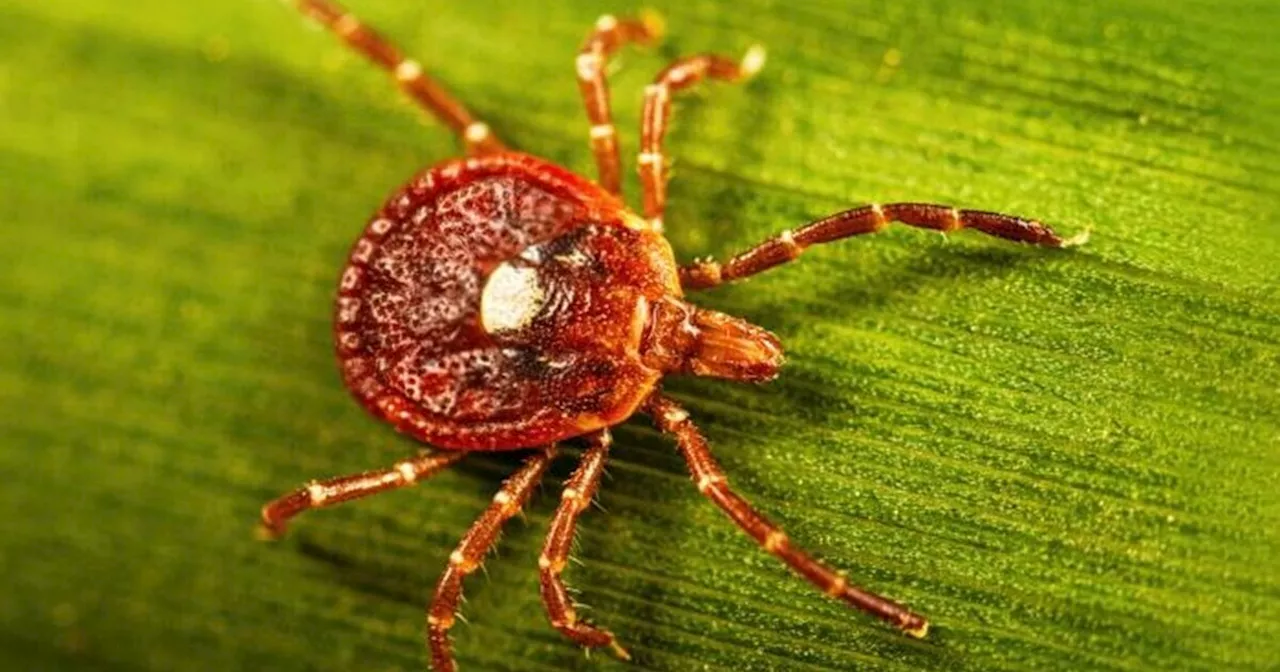Health
First Documented Death from Alpha-Gal Syndrome Raises Alarm

Researchers have reported the first documented death from alpha-gal syndrome, a severe allergic reaction to red meat associated with bites from lone star ticks. This tragic case involves a 47-year-old pilot from New Jersey who passed away after consuming a hamburger during a barbecue in 2024.
The findings, published by researchers at the University of Virginia School of Medicine, detail the pilot’s sudden illness. Approximately four hours after eating, he became ill and was later found unconscious in a bathroom. Despite immediate medical intervention, he was pronounced dead at a local hospital. The autopsy revealed the cause of death as a sudden unexplained event, highlighting the severe nature of this allergy.
This incident underscores the potentially life-threatening implications of alpha-gal syndrome, particularly for individuals who may be undiagnosed. The pilot’s wife indicated that he had previously experienced symptoms after red meat consumption, including abdominal discomfort, nausea, and vomiting. Initially, these episodes were misattributed to food poisoning, illustrating the challenges in recognizing and diagnosing the syndrome.
Prior to this fatal event, the pilot had suffered similar symptoms after a steak dinner, indicating a concerning pattern linked to red meat. Despite these previous incidents, he and his wife did not seek medical help. Following his death, a blood sample indicated an allergic reaction typical of alpha-gal syndrome. Additional investigations revealed multiple bites from lone star ticks, believed to have triggered the allergy.
Alpha-gal syndrome is characterized by an allergic response to alpha-gal, a sugar molecule found in mammalian red meat. Experts have noted a growing prevalence of lone star ticks in the United States, which are responsible for transmitting the syndrome. The Centers for Disease Control and Prevention (CDC) has reported a marked increase in confirmed cases, estimating that as many as 450,000 people may be affected by this condition.
Compounding the problem is the delayed or misdiagnosed nature of alpha-gal syndrome, often due to a lack of awareness among both patients and healthcare providers. The pilot’s case serves as a stark reminder of the allergy’s potential severity and the critical importance of early diagnosis and management.
With rising temperatures and habitat changes contributing to the northward migration of lone star ticks, public health concerns are mounting. These ticks not only facilitate the spread of alpha-gal syndrome but also expose larger populations to the risk of infection. Experts recommend preventive measures, such as using insect repellent, wearing protective clothing, and avoiding known tick habitats.
In the absence of a vaccine for alpha-gal syndrome, dietary modifications are essential for management, primarily the elimination of red meat from the diet. The pilot’s tragic death highlights the urgent need for increased public awareness regarding alpha-gal syndrome, encouraging early detection and educating healthcare providers about its symptoms and management strategies.
This case illustrates a growing public health concern, emphasizing the need for further understanding of the disease, its triggers, and effective prevention and treatment methods. As cases continue to rise, addressing the implications of alpha-gal syndrome becomes increasingly critical in safeguarding health.
-

 Top Stories1 month ago
Top Stories1 month agoNew ‘Star Trek: Voyager’ Game Demo Released, Players Test Limits
-

 World1 month ago
World1 month agoGlobal Air Forces Ranked by Annual Defense Budgets in 2025
-

 World1 month ago
World1 month agoMass Production of F-35 Fighter Jet Drives Down Costs
-

 World1 month ago
World1 month agoElectrification Challenges Demand Advanced Multiphysics Modeling
-

 Science1 month ago
Science1 month agoTime Crystals Revolutionize Quantum Computing Potential
-

 Business1 month ago
Business1 month agoGold Investment Surge: Top Mutual Funds and ETF Alternatives
-

 Entertainment1 month ago
Entertainment1 month agoFreeport Art Gallery Transforms Waste into Creative Masterpieces
-

 Top Stories1 month ago
Top Stories1 month agoDirecTV to Launch AI-Driven Ads with User Likenesses in 2026
-

 Lifestyle4 weeks ago
Lifestyle4 weeks agoDiscover Reese Witherspoon’s Chic Dining Room Style for Under $25
-

 Health4 weeks ago
Health4 weeks agoGavin Newsom Critiques Trump’s Health and National Guard Plans
-

 Business1 month ago
Business1 month agoUS Government Denies Coal Lease Bid, Impacting Industry Revival Efforts
-

 Lifestyle1 month ago
Lifestyle1 month agoLia Thomas Honored with ‘Voice of Inspiration’ Award at Dodgers Event









